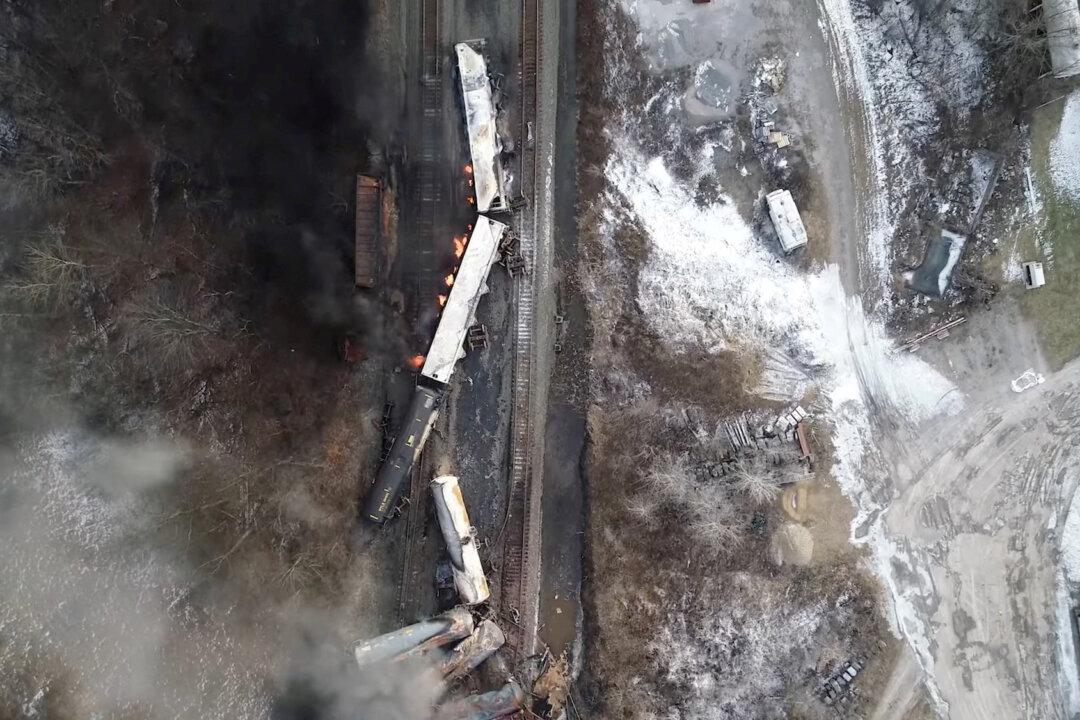Sens. J.D. Vance (R-Ohio) and Sherrod Brown (D-Ohio) have announced new legislation to improve railway safety and prevent future derailments, like the one that recently devastated their constituents in East Palestine, Ohio.
Co-sponsored by Sens. Bob Casey (D-Penn.), John Fetterman (D-Penn.), Marco Rubio (R-Fla.), and Josh Hawley (R-Mo.), the bipartisan bill (pdf) aims to enhance safety protocols for trains carrying hazardous materials by instituting new regulations and requirements for rail carriers, heightened maximum fines for misconduct, and the appropriation of funds for research and enhanced HAZMAT training for first responders.





